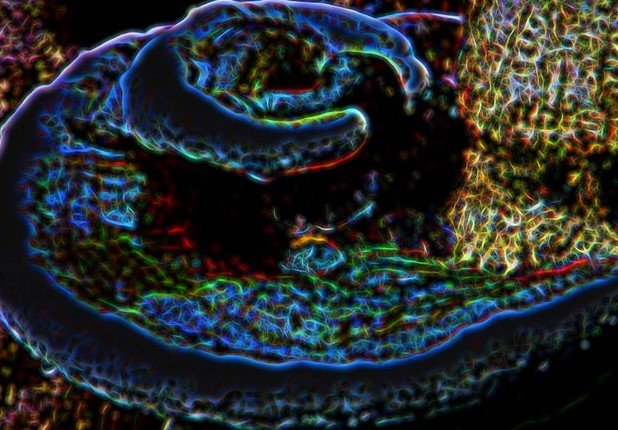In an exciting breakthrough, researchers from Georgia Tech have developed tiny lab-grown models of human immune systems, offering a new way to study how cancer patients respond to infections and treatments. These models, known as human immune organoids, mimic the environment where immune cells function, helping to uncover why some patients struggle with infections even after undergoing cancer treatment.
A Breakthrough in Immune System Research
Georgia Tech’s innovative use of synthetic hydrogels has allowed researchers to recreate human immune systems in the lab with unprecedented accuracy. These models, which replicate tonsils and lymph node tissue, give scientists a better way to study immune responses to infections, vaccines, and treatments. The creation of these organoids marks a significant advancement in biomedical research, especially in understanding immune vulnerabilities in cancer patients.
Led by Ankur Singh, a professor at Georgia Tech, the team’s research has already had a significant impact. By using human blood and tonsil cells in their synthetic gel environments, they’ve been able to sustain and track B cell responses, offering a more realistic and long-lasting model for studying immunity. This progress could be a game-changer in understanding how cancer therapies impact immune function, particularly for lymphoma survivors.

From Lab to Real-World Impact: How Immune Organoids Are Changing Medicine
The lab-grown immune systems offer a new way to bridge the gap between animal models and human immunology. Traditional animal models often fail to replicate human immune responses accurately, leading to poor clinical outcomes. However, by using synthetic hydrogels, the researchers have created a more faithful reproduction of human immune biology. This could accelerate the development of more effective vaccines and therapies, benefiting a wide range of patients.
Monica Zhong, a Ph.D. student and first author of the study, explains the motivation behind the research: “Animal models are valuable, but they don’t always mirror human immune biology accurately. Our new model replicates the complexity of the human immune system at the cellular, tissue, and system levels.” The result? A powerful tool that can predict how an individual’s immune system will respond to infections and cancer treatments, offering personalized insights for patient care.
How Lymphoma Survivors May Benefit from Immune Organoids
One of the key areas of focus for the research team is understanding the long-term effects of cancer treatments, especially in lymphoma survivors. Cancer therapies such as immunotherapies often leave patients with weakened immune systems, making them more susceptible to infections. By studying immune responses in lab-grown models made from the blood and cells of lymphoma patients, the researchers have been able to observe how the immune system fails to organize properly in response to infection. This lack of organization may help explain why lymphoma survivors face chronic immune challenges.
The team has already found that certain immune cells from lymphoma patients struggle to form the “zones” necessary for a strong immune response, a crucial part of the body’s defense against invaders. This insight could lead to new strategies for boosting the immune systems of cancer patients and survivors, improving their ability to fight infections and respond to treatments like vaccines.
The Potential to Transform Vaccine and Therapy Development
The versatility of immune organoids makes them invaluable for a range of applications, from vaccine development to improving therapeutic treatments for immunosuppressed patients. The ability to create hundreds of these organoids in a single sitting means researchers can test various treatments on a broad spectrum of patients, both healthy and immunosuppressed. This could accelerate the pace of vaccine testing, especially for diseases that require personalized approaches.
By providing a more accurate representation of how immune systems react to various conditions, organoids could also help identify why some treatments fail. For instance, understanding how immune cells from immunosuppressed patients react to vaccines or infections could lead to more tailored and effective therapies. As Dr. Jean Koff, a co-author of the study and expert in hematology and oncology, notes, “This technology provides deeper biological insights and an innovative way to monitor recovery from immunological defects over time.”
Looking Toward the Future of Immune System Research
The team at Georgia Tech, alongside collaborators from Emory University, Children’s Hospital of Atlanta, and Vanderbilt University, is already looking ahead to the next phase of their research. They aim to develop cellular therapies and even create models of aged immune systems to address questions related to aging and immune function. With ongoing support from funding agencies such as the Wellcome Leap HOPE program and the National Institute of Allergy and Infectious Diseases, this research is poised to have a lasting impact on how we approach immune-related diseases, vaccine development, and cancer treatment.
“This work could lead to new ways of boosting immune defenses, ultimately helping vulnerable patients stay healthier and recover more fully,” Singh says. The implications for cancer survivors, immunosuppressed individuals, and vaccine development are enormous, promising a future where more personalized and effective treatments are available to those who need them most.
